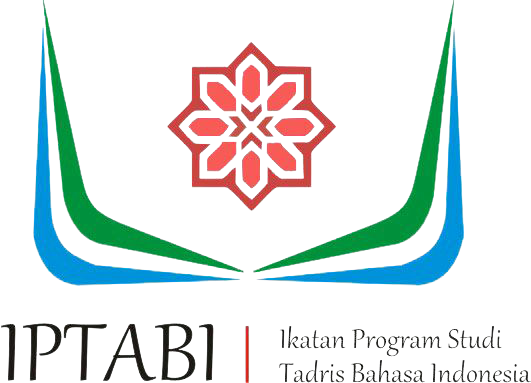Kajian Sastra Bandingan Pada Lirik Lagu Demi Kowe Karya Pendhoza dan Merantau Karya Abah Lala
DOI:
https://doi.org/10.29240/estetik.v2i01.817Keywords:
song lyrics, comparative literature, male struggleAbstract
This study aims to reveal the similarities and differences in Pendhoza's Demi Kowe song lyrics with the song lyrics Merantau by Abah Lala. This research is included in the type of qualitative descriptive research with a comparative literary approach. The data collection technique used is the technique of reading and recording. The researcher reads the two song lyrics and records the similarities and differences between the two song lyrics. Data analysis techniques use interactive techniques that include data reduction processes, data display and conclusion drawing. The results showed that the two songs had similarities and differences. The similarity between the two songs lies in the character values, please help, discipline, responsibility, and independence. The difference between the two songs can be seen in terms of the story that Demi Kowe's song lyrics tell more about the return of a man after going overseas to keep his promises. In Demi Kowe's song lyrics, religious values were also found that were not found in Merantau's song lyrics. In the song lyrics of Merantau the difference lies in the content of the story that tells about the struggle of a husband who lives in the land of rantau. In addition, in the song lyrics Merantau also tells about the suspicions and emotions of a husband towards the wife who was left at home.
Downloads
References
Damono, S. J. (2005). Pegangan Penelitian Sastra Bandingan. Jakarta: Pusat Bahasa Departemen Pendidikan Nasional.
Inderasari, E., & Achsani, F. (2018). Gaya Bahasa Repetisi dan Perbandingan Serta Pesan Moral pada Lirik Lagu Genre Dangdut Koplo. Jurnal Gramatika, 4(2), 325–339.
Kholis, N. (2018). Syiar Melalui Syair: Eksistensi Kesenian Tradisional Sebagai Media Dakwah Di Era Budaya Populer. Al-Balagh, 3(1).
Maghfiroh, N. V. (2018). Citra Perempuan Jawa dalam Novel Canting Karya Arswendo Atmowiloto dan Amba Pendahuluan. Estetik, 1(1), 69–84.
Muhammad. (2014). Metode Penelitian Bahasa. Jogjakarta: Ar-Ruzz Media.
Ni’mah, E. (2017). Pandangan Nasionalisme dalam Puisi Maḥmūd Darwisy Dan Rendra dalam Analisis Sastra Banding. An-Nas : Jurnal Humaniora, 2(1), 91–102.
Ratna, N. K. (2013a). Stilistika. Yogyakarta: Pustaka Pelajar.
Ratna, N. K. (2013b). Teori, Metode Dan Teknik Penelitian Sastra. Yogyakarta: Pustaka Pelajar.
Rokhmansyah, A. (2014). Studi dan Pengkajian Sastra; Perkenalan Awal Terhadap Ilmu Sastra. Yogyakarta: Graha Ilmu.
Santosa, R. (2017). Metode Penelitian Kualitatif Kebahasaan. Surakarta: UNS press.
Sugihastuti. (2011). Teori Apresiasi Sastra. Yogyakarta: Pustaka Pelajar Offset.
Waluyo, H. J. (2011). Pengkajian dan Apresiasi Prosa Fiksi. Surakarta: UNS press.
Wibowo, A. (2013). Manajemen Pendidikan Karakter Di Sekolah. Yogyakarta: Pustaka Pelajar.
Downloads
Published
How to Cite
Issue
Section
Citation Check
License
Copyright (c) 2019 Ferdian Achsani

This work is licensed under a Creative Commons Attribution-NonCommercial-ShareAlike 4.0 International License.
Authors who publish with ESTETIK : Jurnal Bahasa Indonesia agree to the following terms:
- Authors retain copyright and grant the journal right of first publication with the work simultaneously licensed under a Creative Commons Attribution-NonCommercial-ShareAlike 4.0 International License (CC BY-NC-SA 4.0) that allows others to share the work with an acknowledgment of the work's authorship and initial publication in this journal.
- Authors are able to enter into separate, additional contractual arrangements for the non-exclusive distribution of the journal's published version of the work (e.g., post it to an institutional repository or publish it in a book), with an acknowledgment of its initial publication in this journal.
- Authors are permitted and encouraged to post their work online (e.g., in institutional repositories or on their website) prior to and during the submission process, as it can lead to productive exchanges, as well as earlier and greater citation of published work (See The Effect of Open Access).






